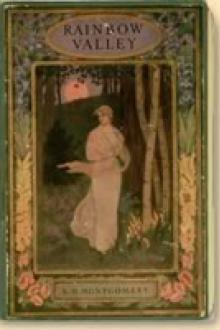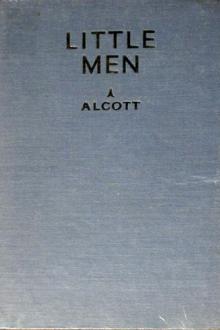Genre History. Page - 21

contribution made by the freemen who live across the ocean of peace from you to "make the world safe for democracy."
I also have the hope that the stories of personal experience will make real to you some of the men whose bodies have been for three years part of that human rampart that has kept your homes from desolation, and your daughters from violation, and that you will speed in sending them succor as though the barrier had broken and the bestial Hun were even now, with lust dominant, smashing at your own door.
[1] Boys Own Paper.
[2] "Ben" was the living-room of a Scotch cottage where only intimate friends were admitted. Ian Maclaren says of a very good man: "He was far ben wi God."
PART I
"THE CALL TO ARMS"
CHAPTER I
THE CALL REACHES SOME FAR-OUT AUSTRALIANS
Just where the white man's continent pushes the tip of its horn among the eastern lands there is a black man's land half

irts of the town. My servant is an old country-woman, ill-natured from stupidity, and, moreover, there is always a nastysmell about her. I am told that the Petersburg climate is bad for me, andthat with my small means it is very expensive to live in Petersburg. Iknow all that better than all these sage and experienced counsellors andmonitors. ... But I am remaining in Petersburg; I am not going awayfrom Petersburg! I am not going away because ... ech! Why, it isabsolutely no matter whether I am going away or not going away.
But what can a decent man speak of with most pleasure?
Answer: Of himself.
Well, so I will talk about myself.
II
I want now to tell you, gentlemen, whether you care to hear it or not, whyI could not even become an insect. I tell you solemnly, that I have manytimes tried to become an insect. But I was not equal even to that. I swear,gentlemen, that to be too conscious is an illness--a real thorough-goingillness. For man's everyday needs, it would ha

that our city Jerusalem hadarrived at a higher degree of felicity than any other city underthe Roman government, and yet at last fell into the sorest ofcalamities again. Accordingly, it appears to me that themisfortunes of all men, from the beginning of the world, if theybe compared to these of the Jews (3) are not so considerable asthey were; while the authors of them were not foreigners neither.This makes it impossible for me to contain my lamentations. Butif any one be inflexible in his censures of me, let him attributethe facts themselves to the historical part, and the lamentationsto the writer himself only.
5. However, I may justly blame the learned men among the Greeks,who, when such great actions have been done in their own times,which, upon the comparison, quite eclipse the old wars, do yetsit as judges of those affairs, and pass bitter censures upon thelabors of the best writers of antiquity; which moderns, althoughthey may be superior to the old writers in eloquence, yet arethey

youth shrunk into tasteless sycophancy, or into silent hatred of the pale world about them and mocking distrust of everything white; or wasted itself in a bitter cry, Why did God make me an outcast and a stranger in mine own house? The shades of the prison-house closed round about us all: walls strait and stubborn to the whitest, but relentlessly narrow, tall, and unscalable to sons of night who must plod darkly on in resignation, or beat unavailing palms against the stone, or steadily, half hopelessly, watch the streak of blue above.
After the Egyptian and Indian, the Greek and Roman, the Teuton and Mongolian, the Negro is a sort of seventh son, born with a veil, and gifted with second-sight in this American world, --a world which yields him no true self-consciousness, but only lets him see himself through the revelation of the other world. It is a peculiar sensation, this double-consciousness, this sense of always looking at one's self through the eyes of others, of measuring one's soul by the tape o

No matter how exciting a tale we might be rehearsing, the mere shifting of a cloud shadow in the landscape near by was sufficient to change our impulses; and soon we were all chasing the great shadows that played among the hills. We shouted and whooped in the chase; laughing and calling to one another, we were like little sportive nymphs on that Dakota sea of rolling green.
On one occasion I forgot the cloud shadow in a strange notion to catch up with my own shadow. Standing straight and still, I began to glide after it, putting out one foot cautiously. When, with the greatest care, I set my foot in advance of myself, my shadow crept onward too. Then again I tried it; this time with the other foot. Still again my shadow escaped me. I began to run; and away flew my shadow, always just a step beyond me. Faster and faster I ran, setting my teeth and clenching my fists, determined to overtake my own fleet shadow. But ever swifter it glided before me, while I was growing breathless and hot

says it would hurt Aunt Martha's feelings. Anne dearie,believe me, the state of that manse is something terrible.Everything is thick with dust and nothing is ever in its place.And we had painted and papered it all so nice before they came."
"There are four children, you say?" asked Anne, beginning tomother them already in her heart.
"Yes. They run up just like the steps of a stair. Gerald's theoldest. He's twelve and they call him Jerry. He's a clever boy.Faith is eleven. She is a regular tomboy but pretty as apicture, I must say."
"She looks like an angel but she is a holy terror for mischief,Mrs. Dr. dear," said Susan solemnly. "I was at the manse onenight last week and Mrs. James Millison was there, too. She hadbrought them up a dozen eggs and a little pail of milk--a VERYlittle pail, Mrs. Dr. dear. Faith took them and whisked down thecellar with them. Near the bottom of the stairs she caught hertoe and fell the rest of the way, milk and eggs and all. You canimagine the re

dently schoolrooms, for desks, maps, blackboards, and books were scattered about. An open fire burned on the hearth, and several indolent lads lay on their backs before it, discussing a new cricket-ground, with such animation that their boots waved in the air. A tall youth was practising on the flute in one corner, quite undisturbed by the racket all about him. Two or three others were jumping over the desks, pausing, now and then, to get their breath and laugh at the droll sketches of a little wag who was caricaturing the whole household on a blackboard.
In the room on the left a long supper-table was seen, set forth with great pitchers of new milk, piles of brown and white bread, and perfect stacks of the shiny gingerbread so dear to boyish souls. A flavor of toast was in the air, also suggestions of baked apples, very tantalizing to one hungry little nose and stomach.
The hall, however, presented the most inviting prospect of all, for a brisk game of tag was going on in the upper entry. One l

s controlled by her it was coldly received and blindly rejected by the governing powers, and there was left only the slower, subtler, but none the less sure, process of working its way among the people to burst in time in rebellion and the destruction of the conservative forces that would repress it.
In the opening years of the nineteenth century the friar orders in the Philippines had reached the apogee of their power and usefulness. Their influence was everywhere felt and acknowledged, while the country still prospered under the effects of the vigorous and progressive administrations of Anda and Vargas in the preceding century. Native levies had fought loyally under Spanish leadership against Dutch and British invaders, or in suppressing local revolts among their own people, which were always due to some specific grievance, never directed definitely against the Spanish sovereignty. The Philippines were shut off from contact with any country but Spain, and even this communication was restricted and ca

Another scholar would greet "the stranger," lead him around the room, and introduce him.
One day it was Abe's turn to do the introducing. He opened the door to find his best friend, Nat Grigsby, waiting outside. Nat bowed low, from the waist. Abe bowed. His buckskin trousers, already too short, slipped up still farther, showing several inches of his bare leg. He looked so solemn that some of the girls giggled. The schoolmaster frowned and pounded on his desk. The giggling stopped.
"Master Crawford," said Abe, "this here is Mr. Grigsby. His pa just moved to these parts. He figures on coming to your school."
Andrew Crawford rose and bowed. "Welcome," he said. "Mr. Lincoln, introduce Mr. Grigsby to the other scholars."
[Illustration]
The children sat on two long benches made of split logs. Abe led Nat down the length of the front bench. Each girl rose and made a curtsy. Nat bowed. Each boy rose and bowed. Nat returned the bow. Abe kept saying funny things under his breath that

gates.
"What cart?" asked Bibot, roughly.
"Driven by an old hag. . . . A covered cart . . ."
"There were a dozen . . ."
"An old hag who said her son had the plague?"
"Yes . . ."
"You have not let them go?"
"MORBLEU!" said Bibot, whose purple cheeks had suddenly become white with fear.
"The cart contained the CI-DEVANT Comtesse de Tourney and her two children, all of them traitors and condemned to death." "And their driver?" muttered Bibot, as a superstitious shudder ran down his spine.
"SACRE TONNERRE," said the captain, "but it is feared that it was that accursed Englishman himself--the Scarlet Pimpernel."
CHAPTER II
DOVER: "THE FISHERMAN'S REST"
In the kitchen Sally was extremely busy--saucepans and frying-pans were standing in rows on the gigantic hearth, the huge stock-pot stood in a corner, and the jack turned with slow deliberation, and presented alternately to the glow